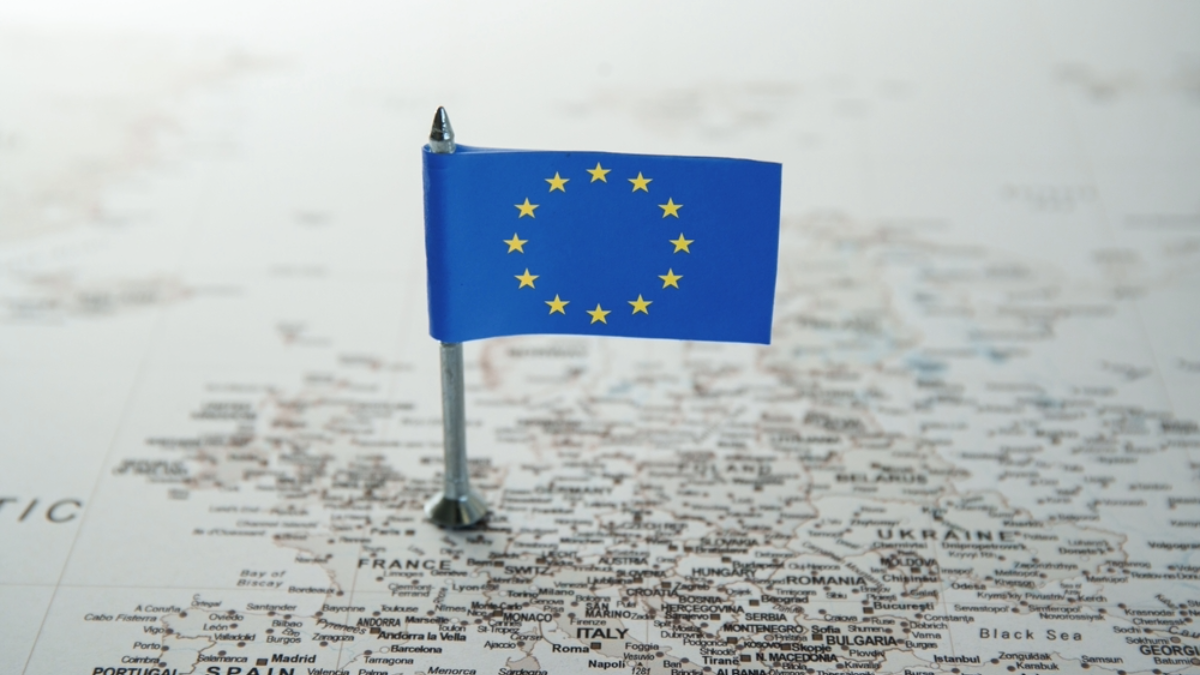The Quest for European Technological Sovereignty: Building the EuroStack
Francesca Bria / Oct 15, 2024Francesca Bria is a fellow at Stiftung Mercator and honorary professor at the UCL Institute for Innovation and Public Purpose.
On September 24th, we convened in Brussels to address one of the most urgent challenges of our time: securing Europe’s digital independence. Our mission is clear—to invest in public goods and infrastructures that protect citizens' rights, ensure European autonomy and security, support the growth of European businesses, and serve the public interest.
By envisioning a trajectory towards technological sovereignty, the new European Commission—led by an Executive Vice President tasked to pursue Technological Sovereignty, Security, and Democracy—presents us with a unique opportunity: the creation of a robust Digital Public Infrastructure, or the EuroStack, is no longer a choice but a necessity.
Today, sovereignty extends beyond traditional geopolitical and economic spheres—it has a critical digital dimension. Unlike Washington and Beijing, Brussels has been slow to recognize the urgency of digital sovereignty. As digital services become integral to sectors like healthcare, energy, transportation, and public administration, the ability to control and govern these infrastructures is now of strategic importance. The concentration of power among a few Big Tech companies poses a serious threat to Europe's digital sovereignty. These companies dominate the entire technology stack—from chips and cloud infrastructure to operating systems, applications, and developer tools—amassing vast amounts of data and solidifying their market position through network effects and economies of scale, particularly with the rise of AI. This stifles innovation, limits opportunities for European businesses, and undermines Europe’s economic security and industrial competitiveness.
Despite its strength as a regulatory power, Europe remains highly dependent on digital technologies from outside the continent, with over 80% of its digital products and services being imported. This dependency threatens Europe’s autonomy, industrial resilience, and economic stability, especially as the U.S. and China bolster their digital supply chains.
It is now crucial for Europe to define a distinct technological model that prioritizes the public interest, upholds democratic values, and supports sustainable development, all while advancing the digital and green transitions.
Europe must make a strong commitment to building the EuroStack, a vital Digital Public Infrastructure that is essential for the continent’s technological sovereignty. The EuroStack serves as a conceptual model that illustrates the various layers of technologies and components necessary for modern digital ecosystems, ranging from hardware to infrastructure, data, models, AI applications, and governance. The EU should encourage the development of a robust and independent ecosystem throughout the entire technology stack, including Cloud, Edge, High-Performance Computing (HPC), quantum computing, and open, decentralized AI development and services. This ecosystem must facilitate domain-specific solutions for strategic sectors. To achieve this, we need reliable developer tools, comprehensive data collection and storage infrastructures, and open protocols that promote independent yet interconnected innovation across alternative platforms and services. It is crucial that our protocols are not limited to operating solely on AWS, Azure, or Google infrastructures.
Just as roads, electricity, and water systems were essential to societal advancement, today’s digital infrastructures—including core components such as digital IDs, payment systems, and data management and exchange platforms—are crucial for providing public services such as healthcare and education. These infrastructures should be acknowledged as fundamental European public goods, designed to ensure transparency, accountability, and active citizen participation in their development and deployment. Such an ecosystem would foster dynamism and empower businesses of all sizes, shielding them from the rent-seeking behaviors of gatekeepers.
This endeavor goes beyond technology; it defines the kind of society we aim to build—one that is democratic, resilient, and built on solidarity and trust. Achieving this requires a united effort, bringing together Member States, industries, innovators, and civil society to create an open, accountable, independent, and participatory digital ecosystem for Europe’s future.
A European digital industrial strategy to develop the EuroStack
Today, a few dominant companies control critical digital infrastructure, data flows, and computational power, shifting the balance of the digital world away from democratic values and toward corporate interests. Without a coordinated and ambitious EuroStack initiative, Europe risks remaining a passive consumer in the digital economy, vulnerable to the strategic interests and geopolitical shifts of others.
In recent years, Europe has invested billions in critical technologies such as AI, microprocessors, 5G, cloud computing, quantum computing, and cybersecurity. Yet, despite these investments, we still lack a coherent strategy and execution plan to scale these technologies and drive widespread adoption of European digital products and solutions. This must change. To achieve true technological sovereignty, Europe must shift from being a consumer to a producer of critical digital infrastructure in a world dominated by digital giants—a situation often termed digital colonialism.
Europe needs a new digital industrial strategy that fosters collaboration between the EU and Member States to support innovation and local technology production. Digital products should be manufactured in Europe, led by homegrown talent, and rooted in shared democratic values. Our strategy should integrate patient public investments, agile venture capital, and large-scale industrial alliances, such as the Important Projects of Common European Interest (IPCEI) in hydrogen, cloud computing, and batteries.
For example, the European Chips Act, which targets over €100 billion in investments, is crucial for maintaining Europe’s leadership in semiconductor production. Likewise, our commitment to exascale and quantum computing aims to position Europe at the forefront of public computing power, providing essential infrastructure for AI startups, SMEs, and the open-source community. We should also nurture European deep tech champions that can utilize EU digital infrastructures in fields like space, quantum technology, biotechnology, renewable energy, semiconductors, and clean technology.
A flagship initiative to develop the EuroStack is crucial for establishing an independent digital ecosystem where European tech companies can thrive. To implement this initiative effectively, the EU must leverage all available tools and explore new strategies, including streamlining decision-making processes, offering targeted subsidies, creating common EU funds, promoting intelligent procurement, and developing ethical frameworks in a coordinated manner. We should prioritize the procurement of European-native tech products that align with our societal values and standards.
For example, we can incorporate specific conditions into our public procurement, industrial policies, and funding frameworks, such as open-source adoption, interoperability, data sovereignty, privacy by design, and full transparency regarding the environmental and social impacts of AI model training and data centers. These measures will ensure that public procurement and funding drive innovation, safeguard European tech sovereignty, create public value, and foster a fair and competitive digital landscape.
Additionally, the EU should encourage public institutions to become early adopters and contributors to European open-source technologies and standards, particularly in EU-funded projects. This strategy will facilitate the adoption of sovereign technologies that develop into crucial digital public infrastructures while rebuilding European technical expertise.
Digital innovation relies on effective execution—developing scalable tech products that achieve mass adoption and provide clear utility. Our goal is not to replicate US platforms but to empower Europe’s unique vision by leveraging our strengths and addressing our genuine needs.
Ambitious European Tech Sovereignty Fund
Ambitious investments are essential if Europe is to keep pace with the US, China, and other regions making bold advances in the digital sphere. Former Prime Minister of Italy and European Central Bank chief Mario Draghi’s call for €800 billion in new resources is crucial to closing the competitiveness gap and boosting Europe’s innovation capacity. At the same time, President Ursula von der Leyen’s proposed Competitiveness Fund is key to reducing strategic dependencies and strengthening industrial resilience.
To further accelerate progress, a dedicated €10 billion European Technological Sovereignty Fund must be created to drive the development of the EuroStack, ensuring it delivers public value and secures Europe's digital independence. This will require close coordination between National Innovation Agencies and both National and European Innovation Funds.
To maximize the impact of these investments, EU and national funding schemes must be simplified and made more accessible, allowing startups, innovators, and SMEs to access available resources more easily. Grants should be targeted to increase risk capacity and offer patient capital for long-term projects, while unlocking private and institutional capital will be essential to scaling Europe’s digital infrastructure. This strategy must also incorporate a gender and inclusion lens, ensuring that all Europeans can participate in and benefit from the EuroStack and the broader digital ecosystem.
The EuroStack initiative must be executed with scale, vision, and urgency. A European Digital Infrastructure Consortium (EDIC), created under the Digital Decade Policy Programme 2030, could govern the initiative, enabling Member States to pool resources efficiently, invest in transformative digital projects, establish common standards, and ensure interoperability across the EU.
Shaping Europe’s independent digital future
By uniting resources and talent to establish an independent EuroStack, Europe can create a unique digital ecosystem that empowers citizens and businesses with greater control over their digital lives. This ecosystem, built on democratically governed public infrastructures, will uphold European values, and ensure sovereignty.
Through strategic investments, innovative funding models, and coordinated action, Europe can foster a thriving independent tech ecosystem rooted in democracy, transparency, and sustainability. President von der Leyen’s €100 billion commitment to a European AI initiative—on par with CERN—represents a transformative step forward. However, this initiative must be complemented by robust industrial policies to scale an independent European tech sector.
Europe stands at a pivotal moment to act as a catalyst for change by advocating for a sustainable, democratic, and human-centered digital economy. The continent can position itself as an alternative to both the extractive and monopolistic models of US Big Tech and the authoritarian Chinese Big State, providing a positive vision for a digitally empowered European Big Democracy—economically, socially, and politically. Addressing these existential challenges necessitates an ambitious political agenda that is aligned with the digital and ecological transitions on the horizon.
Now is the time to transform technological sovereignty into reality, shaping Europe’s digital future while safeguarding our democratic principles. Advancing this agenda in the next European Commission is essential for building a digital future anchored in European independence, innovation, and resilience.
Authors

